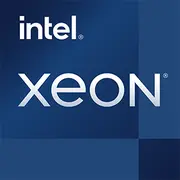Intel Xeon D-2899NT

The Intel Xeon D-2899NT processor is a powerhouse designed for server use, boasting a 10nm technology and a total of 22 cores and 44 threads. With a performance-core base frequency of 2.2 GHz and a max turbo frequency of 3.1 GHz, this processor delivers exceptional processing power, making it ideal for demanding server workloads.
The 30MB L3 cache ensures fast access to frequently used data, further enhancing the processor's performance. Despite its high performance, the processor maintains a manageable thermal design power (TDP) of 135W.
In terms of real-world performance, the Xeon D-2899NT excels in both single-core and multi-core benchmarks, as evidenced by its Geekbench 6 scores of 1159 and 10584, respectively. This level of performance makes it well-suited for a wide range of server applications, from data-intensive tasks to virtualization and cloud computing.
Overall, the Intel Xeon D-2899NT processor stands out as a reliable and high-performing option for server use, offering the power and efficiency required to handle demanding workloads with ease. Whether it's for enterprise-level applications or data center environments, this processor is certainly a strong contender for those seeking top-tier server performance.
Basic
Label Name
Intel
Platform
Server
Launch Date
December 2023
Model Name
?
The Intel processor number is just one of several factors - along with processor brand, system configurations, and system-level benchmarks - to be considered when choosing the right processor for your computing needs.
Xeon D-2899NT
Code Name
Ice Lake-D
Foundry
Intel
Generation
Xeon D(Ice Lake-D Refresh)
CPU Specifications
Total Cores
?
Cores is a hardware term that describes the number of independent central processing units in a single computing component (die or chip).
22
Total Threads
?
Where applicable, Intel® Hyper-Threading Technology is only available on Performance-cores.
44
Performance-core Base Frequency
2.2 GHz
Performance-core Max Turbo Frequency
?
Maximum P-core turbo frequency derived from Intel® Turbo Boost Technology.
3.1 GHz
L1 Cache
80 KB per core
L2 Cache
1.25 MB per core
L3 Cache
30 MB shared
Bus Frequency
100 MHz
Multiplier
22.0
Unlocked Multiplier
No
CPU Socket
?
The socket is the component that provides the mechanical and electrical connections between the processor and motherboard.
Intel BGA 2579
Technology
?
Lithography refers to the semiconductor technology used to manufacture an integrated circuit, and is reported in nanometer (nm), indicative of the size of features built on the semiconductor.
10 nm
TDP
135 W
PCIe Version
?
PCI Express is a high-speed serial computer expansion bus standard used for connecting high-speed components, replacing older standards such as AGP, PCI, and PCI-X. It has gone through multiple revisions and improvements since its initial release. PCIe 1.0 was first introduced in 2002, and in order to meet the growing demand for higher bandwidth, subsequent versions have been released over time.
4
Memory Specifications
Memory Type
?
Intel® processors come in four different types: Single Channel, Dual Channel, Triple Channel, and Flex Mode. Maximum supported memory speed may be lower when populating multiple DIMMs per channel on products that support multiple memory channels.
DDR4-3200
Memory Channels
?
The number of memory channels refers to the bandwidth operation for real world application.
4
ECC Memory Support
Yes
Miscellaneous
PCIe Lanes
32
Benchmarks
Geekbench 6
Single Core
Score
1076
Geekbench 6
Multi Core
Score
10269
Compared to Other CPU
Geekbench 6 Single Core
Geekbench 6 Multi Core
Share in social media
Or Link To Us
<a href="https://cputronic.com/cpu/intel-xeon-d-2899nt" target="_blank">Intel Xeon D-2899NT</a>